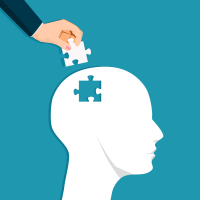Acquired Prosopagnosia (AP) describes a difficulty in recognising faces following a brain injury or damage to the brain following a stroke or encephalitis.
Diagnosis

If your face blindness is the result of is the result of an illness or injury such as a stroke, head injury or encephalitis, the sudden and significant change in your ability to recognise others may be obvious to you. You may be able to discuss the condition with your neurologist and receive a medical diagnosis. You can also ask for Prosopagnosia to be added to your medical records as a long-term condition.
While you may be able to get a formal medical diagnosis, people with acquired prosopagnosia often find that the impact of face blindness may not be recognised and there is little offered in the way of support or therapy from the health services.
There are also self-diagnostic tests and you may wish to sign up as a participant to on of the university research programmes looking into prosopagnosia.
Specific Information and Support
There are national charities which can offer information, insight and support for managing life following a brain related injury or illness, via a helpline or contact page. These include:
Factsheets
Headway have produced a factsheet ‘Prosopagnosia: face blindness after brain injury’, a great resource which also draws on material generated by The Centre for Face Processing Disorders at Bournemouth University and the Encephalitis Society.
Face Blind UK also has a range of factsheets for individuals, their friends and families, employers and professionals.
Peer to Peer Support
Face Blind UK has a group of members with Acquired Prosopagnosia who occasionally meet together occasionally via Zoom. Speaking with others who are experiencing the same difficulties and exploring new strategies for recognising others can make a huge difference. If you are interested in finding out more please do sign up as a member.
